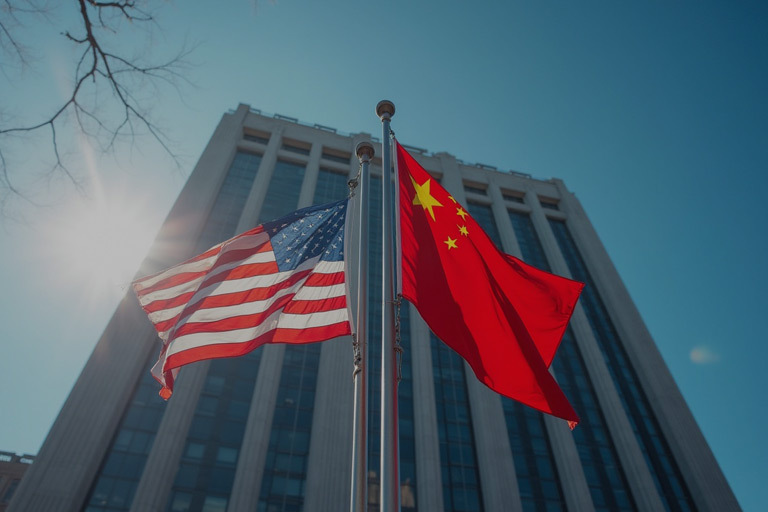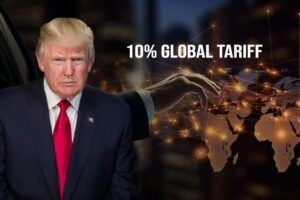The United States and China are preparing for a new round of trade talks in Stockholm, with the goal of prolonging a temporary pause on further tariff increases. The talks, led by US Treasury Secretary Scott Bessent and Chinese Vice Premier He Lifeng, come ahead of an August 12 deadline when the current ceasefire in tariff escalation expires.
This marks the third consecutive month of high-level meetings between the two economic powers in Europe. Previous discussions in Geneva and London helped prevent the collapse of a fragile agreement formed earlier this year amid rising trade tensions.
The Stockholm meeting is expected to address unresolved tariff disputes and broader issues, including technology restrictions. Both sides have sent mixed signals, sometimes conciliatory and sometimes confrontational, as they attempt to balance economic rivalry with the need for cooperation.
The recent truce, initiated in May, paused the implementation of tariffs that had threatened to cut off significant trade flows. Since then, Washington has pursued separate trade agreements with key allies such as the United Kingdom, Japan, and the European Union, while Beijing has worked to reinforce its strategic position, particularly in critical supply chains.
China’s influence in global markets, especially its control over rare earth minerals vital for electronics, electric vehicles, and defense technology, has become a significant bargaining chip. During earlier negotiations, Beijing imposed new export licensing rules on key rare earth materials, which intensified tensions before a temporary resolution was reached in London.
President Donald Trump has taken a less aggressive stance toward China in recent weeks, suggesting that relations have improved and expressing interest in visiting the country. While he hinted that a trade agreement was close, no specifics have been disclosed.
Both sides have made overtures suggesting a willingness to cooperate. The US recently lifted restrictions on Nvidia’s AI chip sales to China, and Beijing suspended its antitrust probe into American chemical firm DuPont. These actions are widely seen as confidence-building steps ahead of further dialogue.
Analysts believe the most likely outcome from the Stockholm talks is a short-term extension of the truce, likely another 90 days, with current tariffs remaining in place. This would provide more time to negotiate a comprehensive deal while preventing immediate economic fallout.
However, recent developments highlight the fragile nature of this pause. Reports emerged that a US Commerce Department official and a Wells Fargo executive have been barred from leaving China, an issue US officials have condemned. Despite this, Bessent remains optimistic, describing the trade relationship with China as constructive.
The agenda is expected to cover several contentious topics, including China’s ongoing imports of sanctioned oil from Russia and Iran. These purchases have drawn scrutiny in Washington, where legislation is being considered to impose steep secondary tariffs on countries continuing such trade.
From Beijing’s perspective, removing remaining US tariffs is a key objective, particularly those linked to accusations of Chinese involvement in fentanyl trafficking. In response to such concerns, China recently expanded its list of controlled substances to include additional fentanyl precursors and synthetic opioids.
Technology export restrictions are also likely to feature prominently. Over the past several years, hundreds of Chinese firms have been blacklisted by the US Commerce Department. These curbs began under Trump’s first term and were later expanded by the Biden administration.
Experts believe China will continue to leverage its dominance in areas such as rare earth minerals, drone technology, and electric vehicle batteries as negotiation tools. Additionally, the pending divestment of TikTok’s US operations from its Chinese parent company ByteDance may be discussed, pending regulatory approval from Beijing.
While both nations remain far from a comprehensive resolution, the talks in Stockholm are seen as a crucial step in preventing a renewed escalation. The balance between rivalry and interdependence continues to shape the trajectory of this complex relationship.







